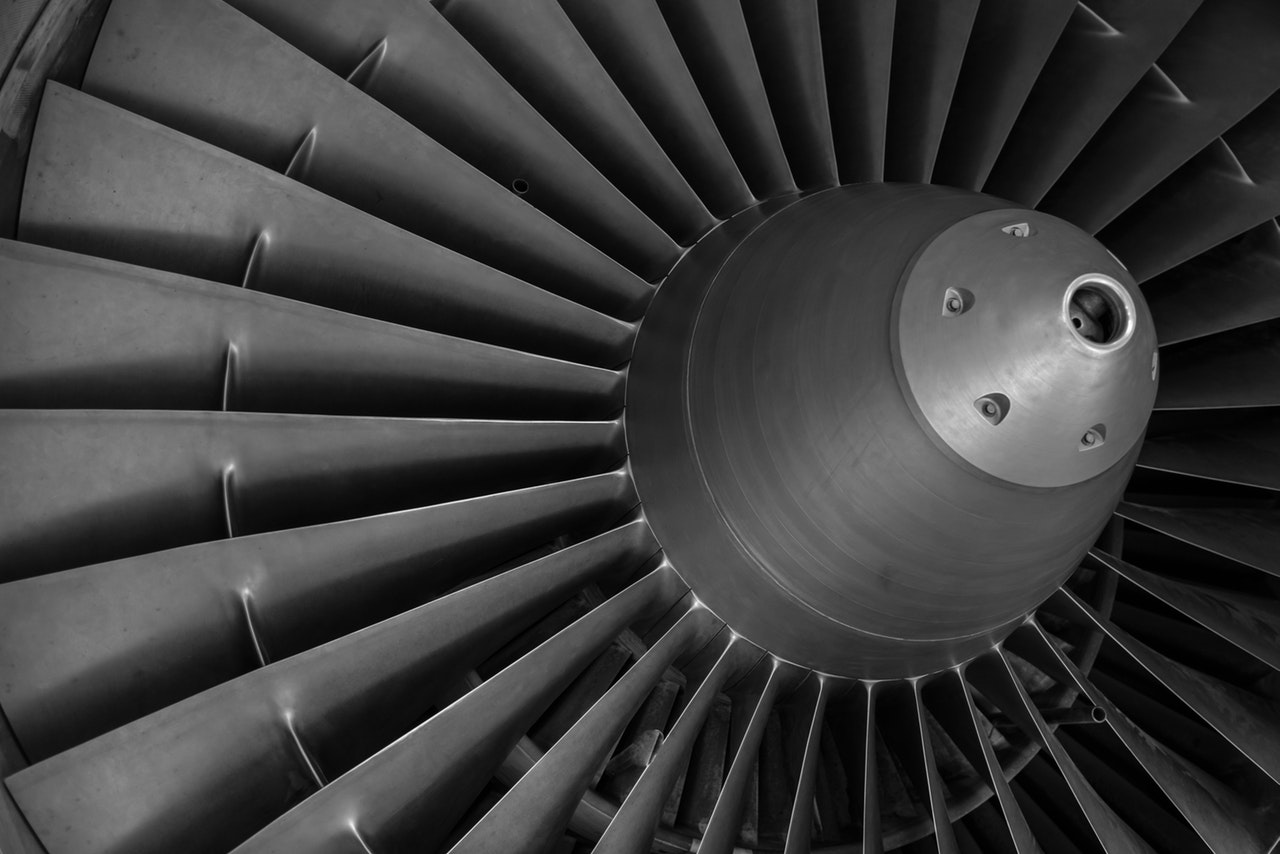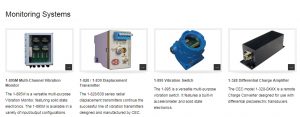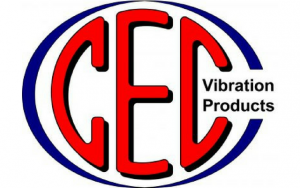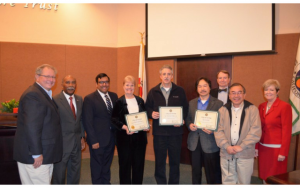Contributor: CEC Vibration Products
CEC pioneered the development of the VELOCITY transducer for vibration measurements. CEC (then Consolidated Engineering Company) began its vibration business in 1940, when the Army awarded a contract to CEC for vibration equipment to monitor seismic activity. This contract ultimately provided CEC with its first “vibration pickup” which became the 4-102 series of velocity transducers. The 4-102 is still manufactured to this day.
During the 1950s, vibration measurement became an important instrumentation science, and CEC was deeply involved. The US Naval Research Laboratories used the 4-102 series to measure vibration on fighter planes, on rockets and in submarines. Large electric motor manufacturers used the 4-102 to balance the rotors on their large horsepower products. Automotive manufacturers used the 4-102 to evaluate and “tune” suspension systems on their cars, and the 4-102 was also used to measure vibration on machine tools.
In 1955, Pan American Airlines used the 4-102 to measure propeller vibration on the four-engine “Strato-Clippers”. This was the first application for measuring vibration on aircraft engines during flight; later to become a major application called AVM or “Airborne Vibration Monitoring”.
In the early 1960s, CEC began to concentrate efforts on this AVM market for measuring vibration of jet engines in test cells and for in-flight monitoring. Development of the velocity transducer technology was extended during these years to provide products which were able to withstand the hostile environments associated with the gas turbine. High temperature is one of these environments where operating temperatures often exceed 700° F for instruments mounted on the engine.
CEC has continued to develop new materials to withstand today's turbine engine requirements, and the velocity transducer remains a significant resource to the turbine engine industry, with many successful in-flight applications.
The CEC velocity transducer became the "standard" that other products were measured against. Other product technologies, such as the piezoelectric accelerometer, have acquired their position in the vibration measurement market, but the CEC "vibration pickup" still provides the user with a simple to use, reliable instrument to measure vibration in a wide variety of applications. CEC’s continued development of new materials designed to withstand today's harsh environment requirements have assured that the velocity transducer remains a significant resource to the machinery monitoring community.
Ask Yourself these Questions when Evaluating a Velocity Sensor





Comments